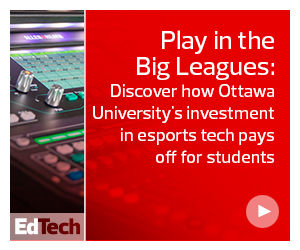Esports Creates Economic Opportunities for Universities and Students
According to a report from GlobalData, the international gaming market is projected to become a $300 billion industry by 2025.
In addition to increasing minority participation in esports and gaming, the new HBCU leagues bring opportunities for colleges and universities — such as financial support, equipment, curriculum insight and professional development for students.
Hampton University started laying the groundwork for an esports gaming lab — the first for an HBCU — thanks to a $340,000 grant from the Department of Homeland Security in 2019. Additionally, the university plans to offer an esports-related curriculum that includes a concentration for graduate students in the department of sports management, a certification in coaching and a focus on the research and development of video games.
MORE ON EDTECH: Here's 3 factors to consider when developing a college esports program.
Johnson C. Smith University, a private HBCU based in Charlotte, N.C., is an inaugural member of the first-ever HBCU esports league powered by Twitch. The school’s esports and gaming program consists of an esports and gaming management academic and certificate program, an esports lab, and a game development club and esports club.
“For colleges and universities that are cash-strapped, esports investments are more imperative now than ever. They often lead to partnerships and collaborations that could provide financial support, either directly or indirectly, to various facets of academia,” says BerNadette Lawson-Williams, a Johnson C. Smith professor who developed the first esports and gaming management minor and certificate program at an HBCU. Within months of the program’s inception last year, the school established partnerships with two large companies: Riot Games and Nacon.
Esports Can Help Boost University Enrollment
An increase in opportunity usually results in an uptick in interest. Lawson-Williams confirms the implementation of the esports and gaming program has led to higher enrollment and retention rates. A team consisting of students, staff and faculty members has recently been assembled to aid with recruitment efforts.
Ultimately, Lawson-Williams says the focus is “purposeful preparation” aimed at creating opportunities for young Black gamers. These opportunities will not only showcase their gaming excellence but also increase the number of Black professionals employed the gaming industry.











